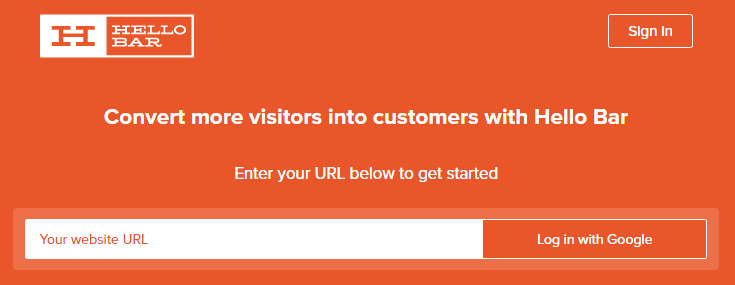4 Things You Need to Know When Funding Your Freelance Business

Freelancing comes with a lot of perks – time flexibility, autonomy, and no pay ceiling. More people than ever before are leaving their corporate jobs, and the pressures an office environment brings, with the sound belief that being your own boss and freelancer is a better option.
It’s a huge step to start your own freelancing business, but it’s worth the leap for many people. If you’re ready to enjoy the advantages of self-employment and launch a freelance business, take a look at these 4 things you should consider before quitting your day job.
Freelance business funding tips
Know your actual startup costs.
When you freelance, particularly in creative fields like writing or graphic design, you don’t need a lot of upfront capital. In addition to setting up your basic home office essentials, such as hardware and software capabilities, remember that you will want to market your business as well. Analyze the cost of website and domain set up, business cards, and channels for advertising or reaching your potential clients.
 A practical exercise before you dive into your freelance startup business is to create a checklist of expenses by category. Here’s a sample checklist to get you started:
A practical exercise before you dive into your freelance startup business is to create a checklist of expenses by category. Here’s a sample checklist to get you started:
- List equipment, furniture, and supplies needed.
- Document costs for tools, software licenses, operating capital, legal fees, and insurance.
- Calculate monthly expenses such as rent, utilities, salary, and taxes.
Once you have fully estimated your expenses, compare your findings to the available capital you are able to dedicate to your business. Businesses often fail when they are hit with unexpected expenses. Therefore, it is critical to develop a business plan outlining your business processes, and scrutinize your ability to fund this endeavor.
Depending on your needs, you may need to find loan options to fund your small business, even if it’s a relatively small amount.
Obtaining a Business Loan Can Be Challenging.
Traditional loans most likely won’t be an option as you start your freelance business. Freelancers pose unique risks in the eyes of banks and lending institutions. The tax structure for a sole proprietor deters banks from awarding loans to businesses that they deem a liability for repayment.
Consider online lending platforms that match your funding needs with loan offers that you can compare for the best fit for your business. Small Business Administration (SBA) loans can also be a great option as an alternative that offers monetary amounts to cover business equipment and financial needs.
Depending on your type of business you may be eligible for a grant. If you are a woman, veteran, or minority freelancer, research government or private business grant opportunities.
Defining your market is essential.
The old saying “it takes money to make money,” isn’t necessarily applicable to freelance business if there are low start up costs, but if you want to sustain successful business growth and longevity, you must build your client base and portfolio. This starts with researching your audience and target market. As a business owner, you need to know who your demographic is – their gender, industry, age and location, to start.
Once you know whom you want to target, you need to figure out where they live online. This is how you find your audience and connect with them. Take a look at forums. While they may seem old school, forums are the perfect place to go to stay on top of current events, to find potential issues your customers may have and to provide value to your online community.
Social media is of course a driving force when it comes to customer engagement. Capitalize on tools like Hootsuite to perform social listening and find current conversations where your potential customers are engaged. Other tools like Buzzsumo are great to identify blog post topics that get the most social engagement as well as influencers who have audiences that are interested in your services. Engage in conversations across social channels to provide content resources, tips and solutions that position you as a thought leader in your space. These techniques will help you to discover the needs of your audience and resonate with them to increase engagement and loyalty.
Some investments are well worth the money.
As a freelancer, your website is your best asset. Take the time and money to develop a site that reflects the work you will be providing. Research effective domain names and platforms that will make your portfolio shine. WordPress is the number one website platform because of its ease of use and endless blog themes a freelancer can choose from like this list of the top 20 freelance themes. You many need to invest in some capital in a developer’s time to make any needed customizations to your website in which case there are many outsourcing platforms like Upwork. Search for “Wordpress Developers” and make sure to read their reviews before hiring.
Once your blog or website is live, it’s essential to know how those online properties are turning visitors into customers. You must have a good understanding of what is working, what isn’t working, and what trends will make visiting your website a “must” for visitors. One of the biggest revenue generators for any business marketing online if an email list. Current customers and prospects alike subscribe to email lists to receive valuable content and special offers. Use free plugins like HelloBar to incentive visitors to your website to sign up.
Building an email list is only the first step. Engaging with that list by giving away your best content for free is how you build trust and credibility that ultimately leads to more sales. Use email marketing software list MailChimp to create automated email sequences the lead subscribers down a conversion funnel. Before you ever ask an email subscribe to buy you must have given them all the information needed to do it themselves. It’s the subscribers that would rather have you do it or don’t have the time that will hire you to do the work for them.
There are many things to consider when launching your freelance business. The perks of packing up your day job and setting yourself up as a freelancer are attractive. Like any small business venture, it’s good to be aware of the risks and uncertainties. Make sure you take time to gain knowledge about running your own freelance business so you can enjoy the variety, opportunities, freedom, and flexibility that freelancing offers.
This post was written by Megan Totka, Chief Editor of ChamberofCommerce.com.


